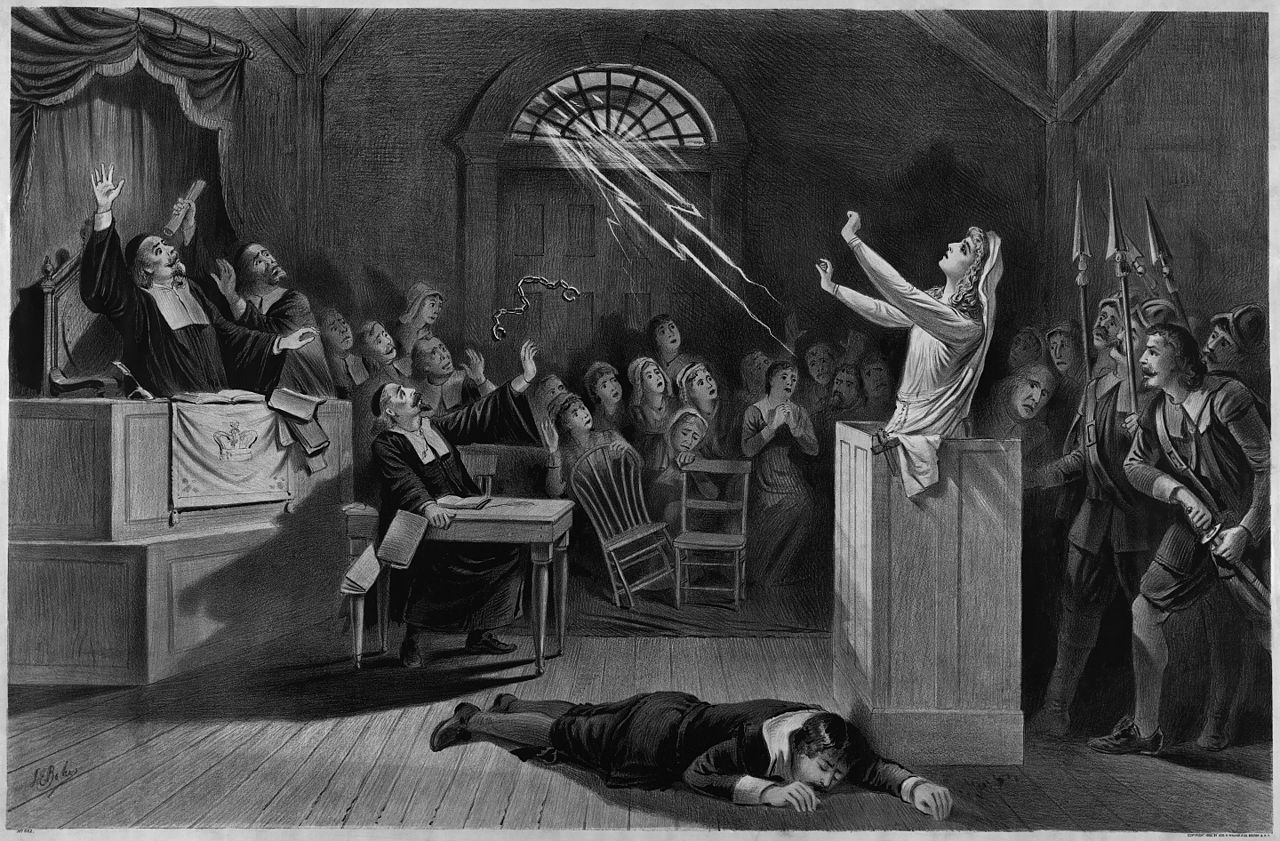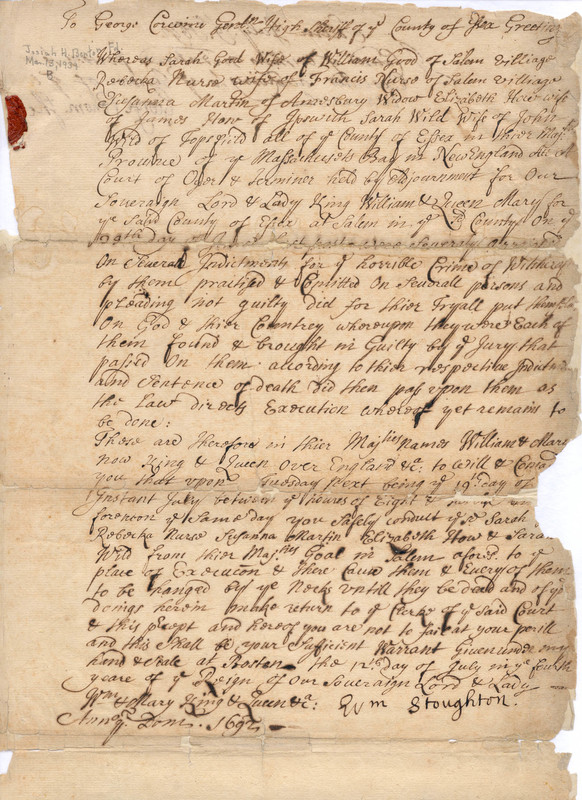The Court of Oyer and Terminer in the Salem Witch Trials
The Salem Courthouse was named the “The Court of Oyer and Terminer,” by the presiding governor at the time, Sir William Phips, in May 1692 (Salem Journal). The courtroom shared a common space in the second town house that was constructed in Salem. In this town house, a Latin school was taught on the first floor while trials were heard in the courtroom resided on the second floor (Salem Museum). The name of the court was indicative of its sole purpose: to hear trials and determine if the accused fits the description of a witch. In addition to Sir Phips, nine other judges (all of which were either successful merchants, landowners, or politicians) were hand picked to help him pass his verdict against the accused (Salem Journal). These additional judges were Jonathan Corwin, Bartholomew Gedney, John Hathorne, John Richards, Nathaniel Saltonstall, Peter Sargeant, Samuel Sewall, and Wait Winthrop. The desire for the court became relevant after an Indian slave, named Tituba, was accused of using witchcraft by two girls named Betty Parris and Abigail Williams (History of Mass.). This incident led to people being falsely accused, imprisoned, or killed as a result. This included notable names such as Bridget Bishop (the first person to be accused and executed), Sarah Good, John Proctor and Elizabeth Proctor (All of which who are included in the movie “The Crucible”). As time passed, people, such as the Putnam Family, attempted to use the hysteria to seek out revenge on others or to be spiteful against those that did not conform to their ideals (Salem Journal). The court was eventually dissolved in October 1692 when Judge Mathers wrote a treatise to Phips siding against the use of spectral evidence, evidence based on dreams or visions, in court.

